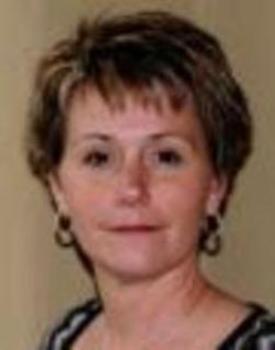Literacy development begins at birth and continues throughout the life span (Neuman & Roskos, 1998). The earliest phases of literacy developmentthe period between birth and the time when children read and write on their ownis referred to as the emergent literacy or early literacy period. Early literacy consists of the skills and knowledge that are developmental precursors to traditional forms of reading and writing (Makin & Whitehead, 2004; Sulzby & Teale, 1991; Teale & Sulzby, 1986; Whitehurst & Lonigan, 1998). Children gain substantial knowledge of language, reading, and writing long before formal literacy instruction begins in school.
Young children experience literacy through a variety of activities and relationships with other people. As children observe their parents actively engaged in activities such as reading newspapers, magazines, books, and maps; checking and responding to email; following recipes; making shopping lists; searching the internet for new information, writing birthday or holiday cards; or simply reading instructions for putting a toy together, they begin to make connections with print (Makin, 2003). These early contacts with print form the basis of a life-long process of reading and writing.
This article addresses the importance of early literacy, its relationship to conventional literacy, and the origins of emergent literacy theory. In addition, the various factors that impact literacy development, such as oral language development, cognitive development, and the home literacy environment are discussed.
A sequel article (Birth to Three: Building a Foundation for Literacy [Part II]), also available at www.speechpathology.com, focuses on facilitating early literacy skills in young children. The early childhood yearsfrom birth through age 8are a critical learning time for children to develop foundational literacy skills that will prepare them for future reading and writing. The sequel article includes a description of the early literacy behaviors in infants and toddlers. Activities and strategies that promote literacy development in the home or early childhood setting are discussed in the sequel article as well as specific literacy behavior milestones.
Why Is Early Literacy Important?
The early childhood yearsfrom birth through age 8are paramount for literacy development. In the early literacy period, children are rapidly developing important foundational skills to prepare them for reading and writing. The skill and knowledge base of early literacy includes the domains of receptive and expressive language (e.g., vocabulary), conventions of print (e.g., understanding that print goes from left-to-right and top-to-bottom on a page), beginning forms of printing (e.g., writing one's name), knowledge of graphemes (e.g., naming letters of the alphabet), grapheme-phoneme correspondence (e.g., knowing that the letter "s" makes the sound /s/), and phonological awareness (e.g., knowing that the word milk begins with the sound /m/, the word sat ends with the /t/ sound, or the word tin has the sound /I/ in the middle (Whitehurst, Zevenbergen, Crone, Schultz, Velting, & Fischel, 1999). These skills develop over the course of the entire early literacy period, from birth to 8 years of age.
Birth to Three: Building a Foundation for Literacy (Part I)
January 14, 2008
Related Courses
1
https://www.speechpathology.com/slp-ceus/course/obstacles-to-language-rich-environments-11222
Obstacles to Language-Rich Environments and Why It Matters for Educational Success: Part 1
This course will explore the impact of screen time and the COVID-19 pandemic on child development. It will address the notable rise in disabilities among preschool-aged children and examine how these factors affect critical areas of development linked to educational success.
auditory, textual, visual
129
USD
Subscription
Unlimited COURSE Access for $129/year
OnlineOnly
SpeechPathology.com
www.speechpathology.com
Obstacles to Language-Rich Environments and Why It Matters for Educational Success: Part 1
This course will explore the impact of screen time and the COVID-19 pandemic on child development. It will address the notable rise in disabilities among preschool-aged children and examine how these factors affect critical areas of development linked to educational success.
11222
Online
PT60M
Obstacles to Language-Rich Environments and Why It Matters for Educational Success: Part 1
Presented by Angie Neal, MS, CCC-SLP
Course: #11222Level: Intermediate1 Hour
ASHA/0.1 Intermediate, Professional; Calif SLPAB/1.0; IACET/0.1; Kansas LTS-S1370/1.0; SAC/1.0
This course will explore the impact of screen time and the COVID-19 pandemic on child development. It will address the notable rise in disabilities among preschool-aged children and examine how these factors affect critical areas of development linked to educational success.
2
https://www.speechpathology.com/slp-ceus/course/obstacles-to-language-rich-environments-11223
Obstacles to Language-Rich Environments and Why It Matters for Educational Success: Part 2
This course will provide guidance on supporting families and schools in the effective use of digital devices, as well as coaching them in play, meaningful conversation, and the development of executive function skills.
auditory, textual, visual
129
USD
Subscription
Unlimited COURSE Access for $129/year
OnlineOnly
SpeechPathology.com
www.speechpathology.com
Obstacles to Language-Rich Environments and Why It Matters for Educational Success: Part 2
This course will provide guidance on supporting families and schools in the effective use of digital devices, as well as coaching them in play, meaningful conversation, and the development of executive function skills.
11223
Online
PT60M
Obstacles to Language-Rich Environments and Why It Matters for Educational Success: Part 2
Presented by Angie Neal, MS, CCC-SLP
Course: #11223Level: Intermediate1 Hour
ASHA/0.1 Intermediate, Professional; Calif SLPAB/1.0; IACET/0.1; Kansas LTS-S1370/1.0; SAC/1.0
This course will provide guidance on supporting families and schools in the effective use of digital devices, as well as coaching them in play, meaningful conversation, and the development of executive function skills.
3
https://www.speechpathology.com/slp-ceus/course/dyslexia-and-developmental-language-disorder-11016
Dyslexia and Developmental Language Disorder: School-Based Screenings, Assessments, Interventions, and Implementation Science
Developmental language disorder (DLD) – a neurodiversity that occurs in 10% of the population and that makes learning vocabulary and grammar difficult - is the most commonly co-occurring learning disability associated with dyslexia, a word reading difficulty. DLD and dyslexia are described in this course with a focus on how they are the same and different. Actionable, practice solutions for improving educational outcomes for those with DLD and dyslexia through response to intervention and implementation science are discussed.
auditory, textual, visual
129
USD
Subscription
Unlimited COURSE Access for $129/year
OnlineOnly
SpeechPathology.com
www.speechpathology.com
Dyslexia and Developmental Language Disorder: School-Based Screenings, Assessments, Interventions, and Implementation Science
Developmental language disorder (DLD) – a neurodiversity that occurs in 10% of the population and that makes learning vocabulary and grammar difficult - is the most commonly co-occurring learning disability associated with dyslexia, a word reading difficulty. DLD and dyslexia are described in this course with a focus on how they are the same and different. Actionable, practice solutions for improving educational outcomes for those with DLD and dyslexia through response to intervention and implementation science are discussed.
11016
Online
PT60M
Dyslexia and Developmental Language Disorder: School-Based Screenings, Assessments, Interventions, and Implementation Science
Presented by Tiffany Hogan, PhD, CCC-SLP, FASHA
Course: #11016Level: Intermediate1 Hour
ASHA/0.1 Intermediate, Professional; Calif SLPAB/1.0; IACET/0.1; Kansas LTS-S1370/1.0; SAC/1.0
Developmental language disorder (DLD) – a neurodiversity that occurs in 10% of the population and that makes learning vocabulary and grammar difficult - is the most commonly co-occurring learning disability associated with dyslexia, a word reading difficulty. DLD and dyslexia are described in this course with a focus on how they are the same and different. Actionable, practice solutions for improving educational outcomes for those with DLD and dyslexia through response to intervention and implementation science are discussed.
4
https://www.speechpathology.com/slp-ceus/course/reading-comprehension-and-slp-foundational-10763
Reading Comprehension and the SLP: Foundational Understanding
This is Part 1 of a two-part series. This course provides SLPs with foundational knowledge needed to directly address and collaboratively support reading comprehension across all grade levels. Models of language and reading comprehension, comprehension processes vs. products, instruction in comprehension skills vs. strategies, factors in reading comprehension difficulties, and connections to general education are discussed.
auditory
129
USD
Subscription
Unlimited COURSE Access for $129/year
OnlineOnly
SpeechPathology.com
www.speechpathology.com
Reading Comprehension and the SLP: Foundational Understanding
This is Part 1 of a two-part series. This course provides SLPs with foundational knowledge needed to directly address and collaboratively support reading comprehension across all grade levels. Models of language and reading comprehension, comprehension processes vs. products, instruction in comprehension skills vs. strategies, factors in reading comprehension difficulties, and connections to general education are discussed.
10763
Online
PT60M
Reading Comprehension and the SLP: Foundational Understanding
Presented by Angie Neal, MS, CCC-SLP
Course: #10763Level: Intermediate1 Hour
AG Bell - LSLS/1.0 Domain 3, Domain 8, Domain 9; ASHA/0.1 Intermediate, Professional; Calif SLPAB/1.0; IACET/0.1; Kansas LTS-S1370/1.0; SAC/1.0
This is Part 1 of a two-part series. This course provides SLPs with foundational knowledge needed to directly address and collaboratively support reading comprehension across all grade levels. Models of language and reading comprehension, comprehension processes vs. products, instruction in comprehension skills vs. strategies, factors in reading comprehension difficulties, and connections to general education are discussed.
5
https://www.speechpathology.com/slp-ceus/course/reading-comprehension-and-slp-contributions-10764
Reading Comprehension and the SLP: Contributions of Language
This is Part 2 of a two-part series. The connections between reading comprehension and areas of language such as vocabulary, morphosyntax and social communication are described in this course. Implications for intervention/instruction and collaboration with educators are also discussed.
auditory, textual, visual
129
USD
Subscription
Unlimited COURSE Access for $129/year
OnlineOnly
SpeechPathology.com
www.speechpathology.com
Reading Comprehension and the SLP: Contributions of Language
This is Part 2 of a two-part series. The connections between reading comprehension and areas of language such as vocabulary, morphosyntax and social communication are described in this course. Implications for intervention/instruction and collaboration with educators are also discussed.
10764
Online
PT60M
Reading Comprehension and the SLP: Contributions of Language
Presented by Angie Neal, MS, CCC-SLP
Course: #10764Level: Intermediate1 Hour
AG Bell - LSLS/1.0 Domain 3, Domain 8, Domain 9; ASHA/0.1 Intermediate, Professional; Calif SLPAB/1.0; IACET/0.1; Kansas LTS-S1370/1.0; SAC/1.0
This is Part 2 of a two-part series. The connections between reading comprehension and areas of language such as vocabulary, morphosyntax and social communication are described in this course. Implications for intervention/instruction and collaboration with educators are also discussed.



